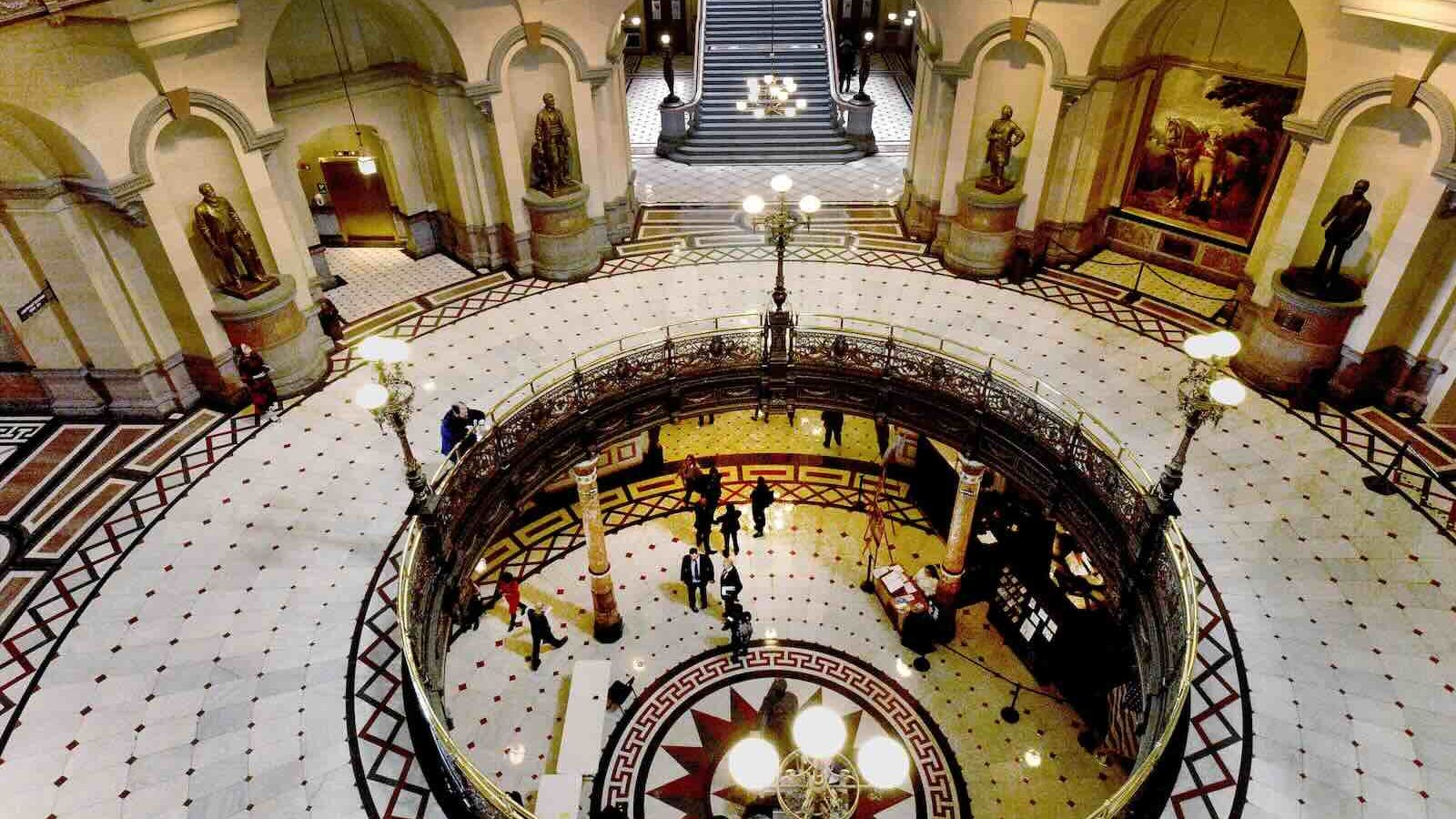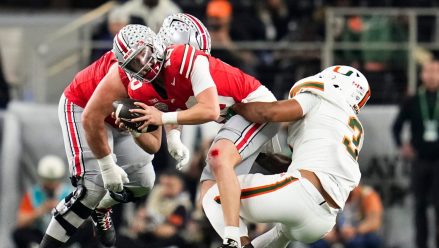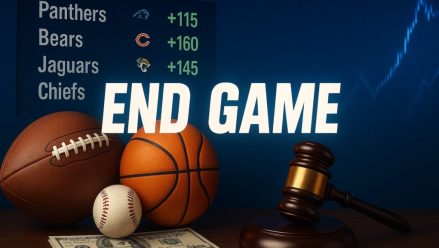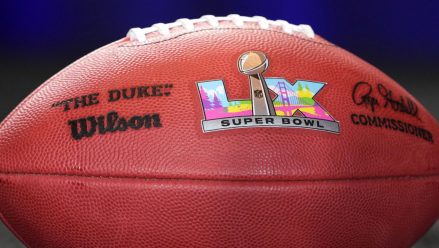Call it part explanatory, part analysis, and part therapeutic.
During an appearance this week on the Low Rollers podcast, Sports Betting Alliance (SBA) President Jeremy Kudon provided a behind-the-scenes look at how he and his clients, during the previous weekend, learned about the potential ratification of a novel new tax from Illinois lawmakers aimed primarily at squeezing more from SBA member companies FanDuel and DraftKings.
If Gov. JB Pritzker indeed signs the budget bill, licensed Illinois sportsbooks will have to pay a $0.25 levy on each of their first 20 million wagers accepted during the fiscal year. And for the volume of wagers beyond 20 million, the surcharge will increase to $0.50 per wager, making the effective tax rate at or above New York’s 51% on gross gaming revenue. And this comes just one year after Illinois lawmakers raised the tax rate on licensed sportsbooks from a flat 15% on adjusted gross revenue to a progressive one ranging from 20% to 40% based on revenue thresholds.
“The anger is palpable, and I think that the anger remains palpable with my clients,” said Kudon, who is also a partner in the law firm Orrick’s public policy group. “And the industry in general, it’s one of those unifying moments. I’ve heard from people that sometimes we compete with, people in state legislatures, some folks that we’re not always aligned with, and the sentiment is “Wow, this is insane.’”
Kudon set the scene by referencing Goodfellas, noting progress made toward legalizing iGaming, anticipating discussion around that and potentially getting “made,” only to eventually get “whacked” with a tax that the SBA believes is punitive, will hurt customers, benefits and incentivizes gray and black market activity, and is antithetical to and undermines lawmakers’ professed concerns about responsible gambling in general.
The full podcast is accessible below (or listen on iTunes here or Spotify here). Just below the pod player, we highlight a few key comments from Kudon.
On disincentives and consequences of the 2024 graduated tax, and then another new tax on top of it in 2025:
“Illinois has created a disincentive to grow. You’re penalizing the people at the very top, which ultimately will hurt customers. It may not have been apparent [with the 2024 tax] that it hurt customers, and I think that that fed into the governor’s belief that we could absorb even more. But there was never even a discussion about it. There was never a bill, there was never a hearing.“
“We met with the governor and every member of that legislature at least 15 different times, with the governor at least three times over the last 12 months, and we were under the impression that what this was water under the bridge from last year that the very intense fight that we had, that we had been hit, that we took it, and we were moving on and trying have a better relationship.“
Terrible versus devastating
“We learned that we were part of like two other taxes, and that it was projected to be $30 million. And that [the new tax] had been sold to members by the governor’s office as just a couple pennies on every wager. …
“That’s still terrible, but like it’s not devastating, right? The next morning we see the actual language and it’s 25 cents per bet and then the even more egregious and discriminatory 50 cents, if you get over 20 million wagers. I nearly threw up, because I was like, this destroys the market, just destroys it and I couldn’t imagine that it was real because of the impact it will have.
“And so we spent the rest of the day doing a call to action at around 12:30 in the afternoon to our customers and supporters. We only held back because we hoped … this would be stripped out because again, $30 million in a $55 billion budget is not a lot of money. It’s pretty easy to replace. We did our own calculations, and we’re like, this is $163 million. So I don’t know what’s going on, and I don’t know where the disconnect is.”
Passing on the cost:
“We have no choice, as much as it pains us, we have no choice but to pass on [this cost], and there’s two reasons. One is it is the only way to send a message to legislators that this matters. If you soak it up, if you swallow it like the companies did [previously], no one knows. No one complains. We grew what, 2 percent, 3 percent, it wasn’t that much in Illinois, but we grew and so everybody’s like, oh, you can take more.
“And what’s so fascinating to me about this, where this graduated tax rate is so insidious, I’ve heard from at least two smaller operators, I won’t say whom, and I’ve spoken to everybody now, who were like, ‘God help us if FanDuel or DraftKings gets out of this market, because … and I don’t think that that’s on the table, but if that happens … because we don’t want to pay a 45% tax or a 40% tax because we don’t have other states to balance this out.
“With one exception, someone in the sweepstakes world, everybody else is viewing this as insane, this is too far, and I’m hoping that this is the moment where we do seize upon this, because we’ve tried to educate people about what the optimal tax should be.”
On responsible gambling:
“I spent most of the last 12 months talking about iGaming in Springfield, and a lot of those conversations have revolved around responsible gambling. And what tools we’re going to use and how we’re going to create friction. And all I wanna say is, guys, we had all these conversations and you were so worried about it.
“You’re so worried that you decided then to destroy the legal sports betting market by putting on this per wager tax.“
“We’ve talked also about eliminating the illegal market, where people are most susceptible to loans that they can’t pay back, where there’s nowhere near the responsible gaming tools, the self-exclusion, the deposit limits. I mean, you’re not even sure you’re gonna get your money back. [The regulated market] is such a better market, and I just feel like something has been lost here where it’s all about revenue.“
A gift to gray and black markets:
“One of the things that really I think is shocking is for a state to increase our taxes while we’ve seen this explosion of online sweepstakes, however you feel about them, but unlicensed, unregulated sweepstakes, and then you have Kalshi and prediction markets. … Do they think that [the new tax scheme] isn’t going to lead to more people entering that market?”
“At least once a week I get a call from a VC firm or from someone in this space that’s like, ‘Hey, I’m thinking about doing an online sweepstakes. Why shouldn’t I do it?’ And you start to run out of ideas, because states are making it so hard for us to do business.”
On the future:
“I think that what has defined these companies is their ability to survive and adapt. And I’m also excited to have bet365 in the SBA now.“
“Maybe something will change, but if [prediction markets] are legal under federal law, and there are states that we just don’t think we can get into, I would be hard pressed to say to any of the member companies of the SBA that you shouldn’t consider that route.”
“The states need to realize what our real problems are, and stop viewing us as just banks, but instead view us as partners and view our customers as their citizens.“







